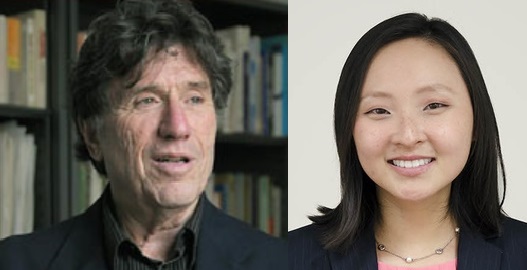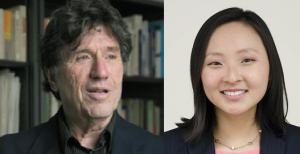UC Santa Barbara researchers publish the first comprehensive study of China’s STEM research environment in higher education
Global Studies distinguished research professor Richard P. Appelbaum, former MacArthur Chair in Sociology and Global & International Studies, and Xueying Han, former postdoctoral scholar at UCSB have co-authored the first comprehensive quantitative analysis of China’s STEM research environment. The study, published in the journal PLOS ONE, explores key challenges that face this burgeoning area of Chinese higher education as the nation pushes to become an academic superpower. While prior research has relied on anecdotal accounts and small focus groups, Professor Appelbaum and Han gathered data from 731 surveys completed by STEM faculty at China’s top 25 universities, seeking to understand not only the issues facing the country’s top researchers, but how government policies might affect their capacity to innovate.
 “Our research shows that the Chinese educational system stifles creativity and the critical thinking necessary to achieve innovative breakthroughs, too often hamstrings researchers with bureaucratic requirements, and rewards quantity over quality,” said Appelbaum. “China’s emphasis on rote learning and memorization reinforces this, as does a strong cultural emphasis on respect for authority. The scholars, who completed the project while working for the former National Science Foundation-funded Center for Nanotechnology in Society based at UCSB, see their research as a baseline, establishing the atmosphere of China’s current STEM environment in higher education so that future studies can compare and contrast. “Our study should be replicated within China, by a Chinese university, in an open survey that protects confidentiality and encourages a high response rate,” said Appelbaum.
“Our research shows that the Chinese educational system stifles creativity and the critical thinking necessary to achieve innovative breakthroughs, too often hamstrings researchers with bureaucratic requirements, and rewards quantity over quality,” said Appelbaum. “China’s emphasis on rote learning and memorization reinforces this, as does a strong cultural emphasis on respect for authority. The scholars, who completed the project while working for the former National Science Foundation-funded Center for Nanotechnology in Society based at UCSB, see their research as a baseline, establishing the atmosphere of China’s current STEM environment in higher education so that future studies can compare and contrast. “Our study should be replicated within China, by a Chinese university, in an open survey that protects confidentiality and encourages a high response rate,” said Appelbaum.
The team also hopes their findings will serve as the impetus for a shift in the focus of Chinese higher education metrics. “The Chinese government would do well to take seriously our conclusions,” said Appelbaum. “They should monitor progress in reforming the educational system to encourage more creative and innovative thought, rather than simply counting publications and patents.
Source/Find out more in "Innovation Nation"



